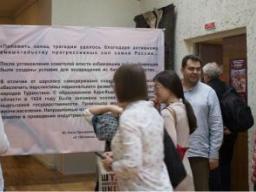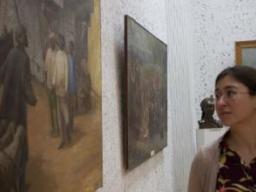Centenary Workshop: 'Rethinking Resistance: The 1916 Uprising in Central Asia'
Our warmest congratulations to CAIS research scholar, Dr Aminat Chokobaeva on being awarded her ANU doctoral degree. Dr Chokobaeva wrote her thesis on the topic: 'The role of the 1916 'Great Revolt' of Central Asia in shaping national identity in Soviet and post-Soviet Kyrgyzstan'.
In 2016 Aminat participated in the organisation of the workshop: 'Rethinking Resistance: The 1916 uprising in Central Asia', which was held in Bishkek, Kyrgyzstan, on 20-21 May 2016.
The year 2016 marks the centenary of the 1916 uprising in Central Asia. The largest and by far the most violent national protest against Russian colonial rule, the uprising of 1916 remains one of the lesser known episodes in the history of the region. Its causes were rooted in economic inequalities and social exclusion imposed on the indigenous population by the imperial authorities. Its impact on the local society was profound as it disrupted agricultural production, resulted in a refugee crisis, and led to an increasingly violent competition for dwindling resources between the colonists and the local farmers and pastoralists. Furthermore, the uprising’s locale – at the periphery of the empire – and its timing – on the eve of the two revolutions that reshaped the political landscape of the metropole – make it a part of what Peter Holquist called 'Russia’s continuum of crisis'.
Image Gallery
The workshop included a display of artwork and literature from the period.

